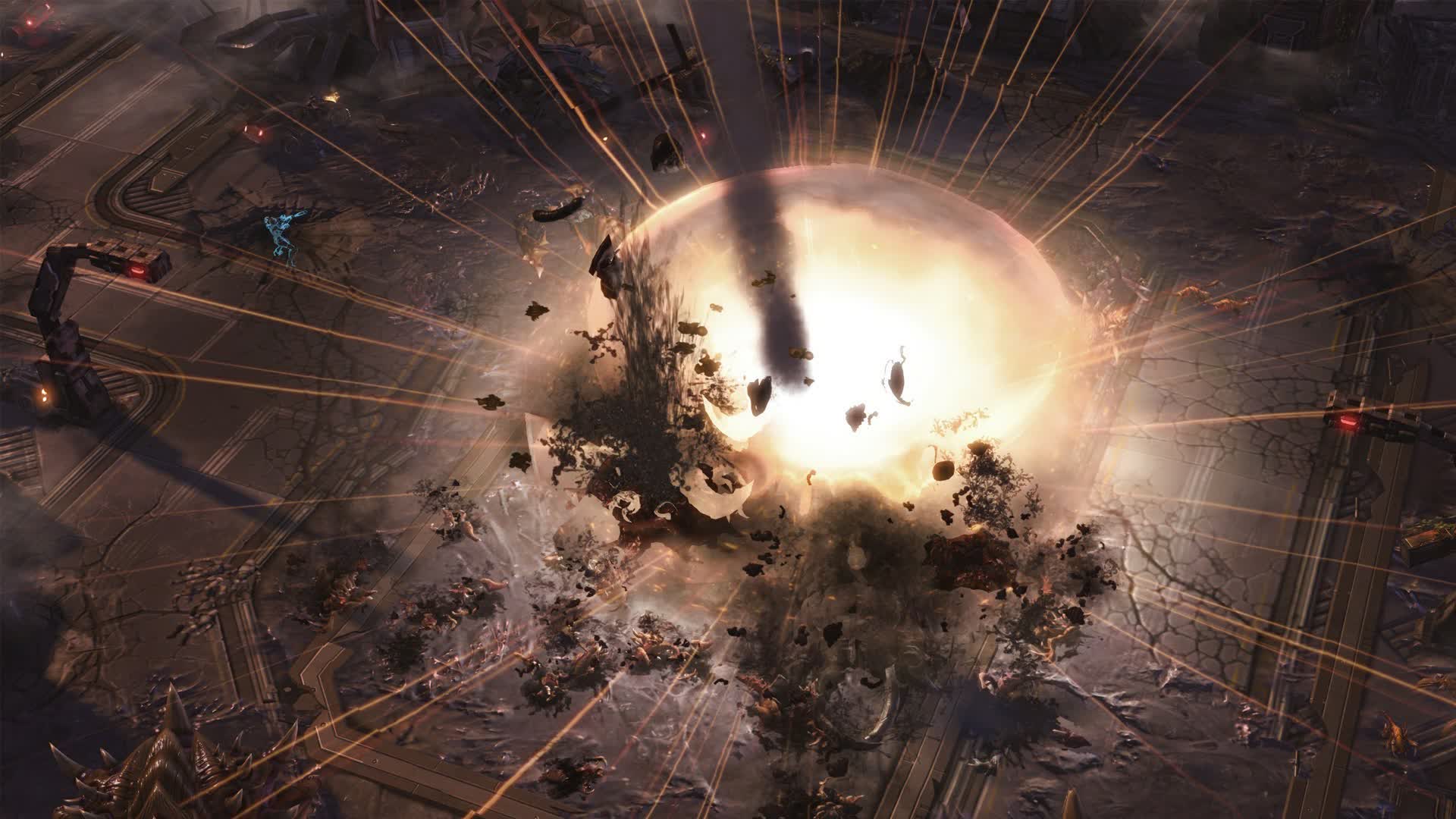The big picture: After StarCraft II saw the end of its development after a decade of updates, a team of Blizzard veterans at Uncapped Games are looking to create the next transcendent entry in the real time strategy genre. In a recent interview, lead game designer at Uncapped, David Kim, spoke about the team's ongoing attempt to create the next great RTS game.
In an interview with GamesIndustry.biz, Kim discussed some of his goals for the future of Uncapped Games, a brand new studio backed by Chinese titan Tencent. Kim, with the aid of Uncapped's sister company, Lightspeed and Quantum Studios, have to put together a team of eight to "take a stab at the next great RTS." This team includes other Blizzard veterans, like lead producer Jason Hughes and lead engineer Zhongshan Zhang.
While many might choose to stay cautiously optimistic of a studio with nothing to show off yet, this particular group might have what it takes to go the distance. Last year, Blizzard announced they would no longer be developing new content for StarCraft II, which definitely won't hurt Uncapped's mission.
It's likely many existing users of StarCraft II – as well as lesser known RTS games with waning support – even the most diehard, will be inclined to look at newer games to move to, so this is a reminder that even mainstays of the gaming landscape do have a certain mortality to them.
Furthermore, even though Uncapped is a new studio, starting just last month, some of the talent involved have already participated in creating "the next great RTS," when they were working on StarCraft II. In an industry with a history of over-promising and under-delivering, where game designers get along promising genre-defining classic, only to release mediocre, or even downright broken products, it is important that the leaders at Uncapped can keep the hype they are building now from reaching a critical mass before they have some proof of concept for their debut project.
Lead producer at Uncapped, Jason Hughes, has said that one of his goals for this project is to keep the scope of the game manageable. This might give the hopeful a small bit of reality to temper some of the other, more extravagant and reaching, goals of this ambitions team.
"Just focus on making a great PC RTS game, and don't worry about other factors. The measurement of success is if we have a great game."
Kim and Hughes have some concrete ideas about what is necessary to have success bringing the RTS genre to a modern audience. In short form, they aim to lower the level of mastery needed to interact with the game's mechanics without compromising the high ceiling on the actual strategy.
This should lower the barrier for entry, as well as the learning curve for new players. If Uncapped is successful here, their unnamed RTS should have some of the crucial elements necessary to reach their lofty goals.
Uncapped hopes to get this game into the hands of the community as soon as possible, so they can be as receptive as possible to feedback moving into its more complete iterations.
Overall, this looks to be a promising team of established industry professionals with aligned goals for their game. Perhaps they, if anyone, have what it takes to revive this dying type of game. Only time will tell. While this project is certainly straying from the current trends in game development – chasing trendy genres and game-modes – to introduce a modern version of a nearly antiquated subgenre, it's totally possible that this is the exact kind of departure needed to produce success for Uncapped.
